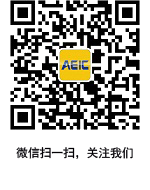
A.Prof. Mohd Rizal Razalli, University Utara Malaysia, Malaysia
Research Area: Agile Management; Service Operations &Supply Chain, Innovation Management
研究领域:敏捷管理; 服务运营与供应链,创新管理
Title:Wealth Generation Through Lean Green Model for Higher Education Institutions
标题:通过绿色模式为高等教育机构创造财富
Abstract:
Generating wealth is becoming one of the important strategy for public universities as the allocation from the government for their operating expenditures has been reduced drastically. Despite this significant reduction of source of income, the universities have to find a way to overcome this challenge by becoming more efficient and effective in their services to the stakeholders. Becoming lean organization enables universities to eliminate the existing waste or non-value added activities in many aspects in the universities' operations, which would yield higher return and savings. Lean is the foundation for an organization to be agile which is the main requirement for sustainability in future organization. In addition to lean, universities have also the responsibility to protect the environment. As a matter of fact, lean and green practices share the same objective - that is to reduce waste. However, studies on lean and green universities is rather scarce. Even though there are evidences that these two concepts can in fact work together, the synergy between the two concepts has yet to be discovered. This paper will discuss the development of a model known as Lean Green Higher Education (LGHE) in Malaysia.

Prof. Wei-Yu Liu, Dong Hwa University, Taiwan, China
刘唯玉教授,东华大学,中国台湾
Research Area: Application of multiple intelligences in teaching, case teaching, teacher education, innovative teaching and assessment
研究领域:教学多元智能,案例教学,教师教育,创新中的应用教学和评估
Title:The Study of Influence on Student Teachers’ Reflection Content by Case Writing and Discussion Guided Frame
标题:案例撰写与讨论引导架构对实习教师省思内容影响之研究
Abstract:
This study explores student teachers’ reflective content by implementing Case Writing and Discussion Guided Frame (referred CWDGF) to led student teachers writing, discussing and reflecting their own teaching. Can it breakthrough the current research literature plight which showed the student teachers’ little reflect on their education beliefs, curriculum assumptions, students' knowledge and teaching ethics? There are 12 student teachers participated in this study. According to student teachers’ practical knowledge and Mezirow’s reflection content, researcher implemented content analysis to analyze 36 cases written by them. The results showed that the reflective content of the student teacher includes self-knowledge (including educational beliefs, curriculum assumptions and teaching ethics, etc.); general teaching knowledge (including teaching skills, classroom management, teacher-student interaction, etc.); knowledge of learners and their traits (including student traits, self-esteem, learning motivation, learning objectives, etc.); and the role of the internship tutor and the internship teacher (including the role and orientation of the class teacher's class teaching, the interaction of the internship tutor and the internship teacher, the authorization and coaching mode, etc.). Writing cases can effectively help student teachers into real reflection, reading peers’ cases help student teachers to enhance their level of reflection on their own teaching cases, case discussions will help student teachers entering the premise reflection. CWDGF which developed by the researcher can effectively guide the student teachers to focus on practice reflection of teaching materials and methods. It also helps student teachers reflect on their education beliefs, curriculum assumptions, teaching ethics and student knowledge.

Director Dr. Kerry Maree, University of Auckland, New Zealand
系主任Kerry Maree博士,奥克兰大学,新西兰
Research Area: Technology Education, supporting indigenous technology education, digital technologies, enterprise and entrepreneurship education
研究领域:技术教育,支持本土技术教育,数字技术,企业和创业教育
Title:Technology Education keeping society current
标题:科技教育让社会保持现状
Abstract:
Keeping pace with the continual change is a daunting task. Especially for those in fields such education, which are not known for being dynamic and nimble. Technology is influencing us, just as much as we are influencing technology. Yet how do we stay in control, remain current, and be leaders and drivers of innovation? This paper will outline how New Zealand has developed a technology education curriculum, national subject association and support structures which link education with industry and the community, to support the learners of tomorrow





